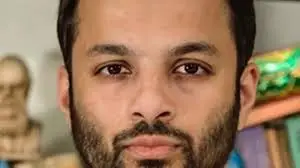SC grants interim bail to Ashoka University Professor Ali Khan Mahmudabad, calls his post on Op Sindoor ‘dog whistling’

The Supreme Court of India recently granted interim bail to Ali Khan Mahmudabad. He is an associate professor and head of the Political Science department at Ashoka University. Mahmudabad was arrested over a controversial social media post about “Operation Sindoor.” This operation was India’s military response to a terrorist attack in Pahalgam, Jammu and Kashmir.
The court did more than just grant bail. It criticized Mahmudabad’s post as “dog whistling.” This term refers to coded messages that provoke certain groups without making direct inflammatory statements.
Background: Arrest and Controversy
Mahmudabad was arrested on May 18, following a complaint by a BJP youth leader. The complaint accused him of posting content that could disturb public harmony. His social media post called for protecting victims of mob violence and discrimination.
Some people saw his message as indirect criticism of the government’s handling of the security situation. This post came at a time when national emotions were high due to the Pahalgam terror attack. The timing and tone raised questions about whether Mahmudabad had crossed the line between free speech and incitement.
Supreme Court’s Strong Remarks
The Supreme Court bench, led by Justice Surya Kant, was clear in its observations. While allowing Mahmudabad’s bail, the court condemned his “dog whistling.” The judge explained this form of speech uses subtle language to send inflammatory signals to a select audience. This allows the speaker to avoid direct accusations while still stirring tension.
Justice Kant also noted that Mahmudabad seemed to seek “cheap publicity” during a national crisis. The court stressed the need for responsible speech, especially from educators and public figures. Their words influence students and public debate.
Investigation and Restrictions
The Supreme Court ordered the creation of a Special Investigation Team (SIT). This team will be led by an officer of Inspector General rank. The SIT will examine if Mahmudabad’s post broke any laws or disturbed communal peace.
The court told Mahmudabad to cooperate fully with the SIT. It also asked him to surrender his passport to prevent flight risk. The professor was further instructed to avoid making any public comments about Operation Sindoor or the Pahalgam attack during the probe.
Reactions from Ashoka University and Public
Ashoka University expressed relief at the bail order. It said the decision comforted Mahmudabad’s family and the university community. The institution also reaffirmed its support for academic freedom and legal processes.
This case sparked a nationwide debate about free speech and its limits. Civil rights groups argue that freedom to criticize the government must be protected. They say highlighting issues like mob violence is essential, even during national crises.
Conversely, some political and social voices emphasize restraint. They warn against speeches that might fuel communal tensions. Such tensions could threaten national security and public order. Balancing free speech with security remains a challenge for India’s democracy.
What is ‘Dog Whistling’?
The court’s use of the term “dog whistling” drew attention to a subtle form of communication. Dog whistling involves using coded phrases or symbols. These seem harmless to most but carry strong messages for certain groups.
This kind of speech allows the speaker to evade legal responsibility. At the same time, it can incite feelings or actions in a targeted audience. The court suggested Mahmudabad’s post was crafted to send indirect signals. These signals might inflame communal tensions without explicit inflammatory content.
Impact on Free Speech and Academia
This case highlights the challenges Indian academics face in a politically charged climate. Universities have been spaces for free thought and debate. But when academics’ social media posts touch sensitive national issues, scrutiny follows.
The Supreme Court’s decision shows academic freedom is not unlimited. Educators must speak responsibly, aware of the potential impact of their words. This is especially important in India’s diverse and sensitive society.
Conclusion
The Supreme Court’s interim bail order reflects a nuanced view. It supports free speech but warns against irresponsible communication. The court also ensured a fair investigation by ordering an SIT probe.
This case will likely remain central to debates on free speech and national security. It shows how India’s institutions work to balance individual rights and collective safety. As the probe unfolds, it will clarify the limits of expression during sensitive times.






